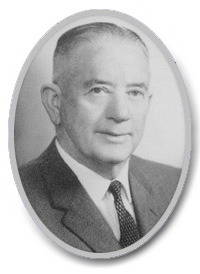- Frank Walsh
Infobox President
name=Frank Walsh
width=200px
order=34thPremier of South Australia
Elections: 1962, 1965
term_start=10 March 1965
term_end=1 June 1967
predecessor=Thomas Playford IV
successor=Don Dunstan
party=Australian Labor Party Hon. Francis Henry “Frank” Walsh (
6 July 1897 –18 May 1968 ) was the 34thPremier of South Australia , serving from10 March 1965 to1 June 1967 .One of eight children, Walsh was born into an
Irish Catholic family inO'Halloran Hill, South Australia . After an education at Christian Brothers College, Walsh left school at fifteen to work as a stonemason, which sparked his interest in the trade union movement. Walsh would serve as President of the South Australian Stonemason’s Society and the national stonemason body and as a member of the Trades and Labour Council of South Australia, while still finding the time to continue working as a stonemason and marry on29 December 1925 .Walsh first stood for the
Australian Labor Party in the safe conservative electorate of Mitcham at the 1938 state election and while losing to theLiberal and Country League (LCL) member, impressed senior ALP figures sufficiently to gain endorsement for the safe Labor seat of Goodwood (renamed Edwardstown in 1956). Walsh duly entered parliament in 1941 and was elected as Deputy Opposition Leader of the state parliamentary Labor Party in 1949, when it became clear no one else wanted the job. Labor had by then been in opposition in South Australia since 1933. The LCL, led by Sir Thomas Playford, ruledSouth Australia through a time of strong economic development and held power thanks to an electoral malappointment known as thePlaymander . In response, many South Australian Labor politicians despaired of ever being in government, and believed the Deputy Opposition Leader's role to be a thankless, poor-paying job.Following the split in the Labor Party in 1955, Walsh, along with Opposition leader
Mick O'Halloran , resisted numerous overtures to join the heavily CatholicDemocratic Labor Party (DLP). Their opposition ensured that the DLP did not attain the same influence in South Australian politics that it did in Victoria andQueensland .Following the sudden death of O'Halloran in 1960, Walsh was narrowly elected to the Labor leadership ahead of
Don Dunstan and followed O’Halloran’s lead of preferring co-operation with the LCL to criticising them and maintained friendly relations with Playford, who treated him in a somewhat avuncular manner.Following Labor’s emphatic victory at the 1965 election on 55 percent of the primary vote, Walsh became the first Labor Premier of South Australia in 32 years and the first Catholic Premier of South Australia. He also found himself the head of an inexperienced government, as no current ALP parliamentarian had previously served as a minister. This left him no choice but to entrust sensitive portfolios to men more used to criticising government actions. Walsh himself took the portfolios of Treasurer and Minister for Immigration.
Walsh’s term as Premier was marked by increased spending on public education and the implementation of far-reaching social welfare and Aboriginal Affairs legislation, although many of these changes were spearheaded by Dunstan, and the socially conservative Walsh may well have personally opposed some of these moves. Walsh was never comfortable dealing with the media, particularly television, and his ascension to the job of Premier only exacerbated these problems. A master of malapropisms and using complex words in the wrong context, Walsh regularly had journalists, "Hansard" reporters, and political ally and foe alike bewildered by his statements. To give but one example, Walsh once said in parliament "In this manner, Mr Speaker, the government has acted as if this were a diseased estate. It's not sufficiently elasticated... The government is suffering from a complete lack of apathy in the case."
His unease with the media was seen in stark contrast to his Attorney-General, Dunstan, who would prove to be a media relations master throughout his later terms as Premier.
Walsh's awkwardness with the media was further highlighted after 1966, the year Playford retired as Opposition Leader and the 37-year-old
Steele Hall took his place. A sagging economy and poor polling figures, Steele Hall's advent to convince local ALP heavyweights that Labor could not win the next election with Walsh as Premier, combined with already being aged 67, Walsh was required under party rules to retire from parliament at the next election. Things came to a head in January 1967, when South Australian Labor power-brokerClyde Cameron publicly thanked Walsh for making the noble decision to retire to make way for a younger person. This was news to Walsh, who had made no such decision. After initially digging in his heels, Walsh eventually announced his retirement two weeks later, but not before attempting (without success) to manoeuvre his protégéDes Corcoran into the Premiership ahead of Dunstan.Walsh died less than two months after his retirement at the 1968 election, and was given a state funeral. While Walsh, who was considered “kindly, generous and unpretentious” by friend and foe, should be given credit for his long parliamentary service and his support for unionism and working class families, he would frequently infuriate fellow party members by habitually becoming obsessed with trivial issues to the detriment of affairs of state.
References
* [http://www.adb.online.anu.edu.au/biogs/A160572b.htm Australian Dictionary of Biography]
-
Wikimedia Foundation. 2010.
